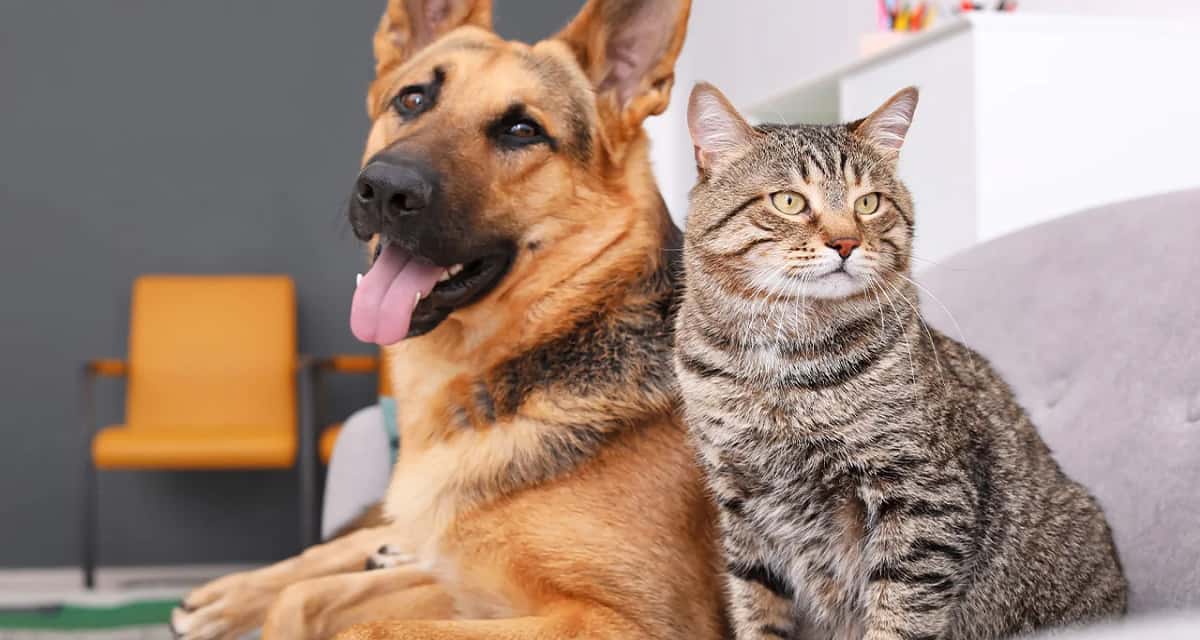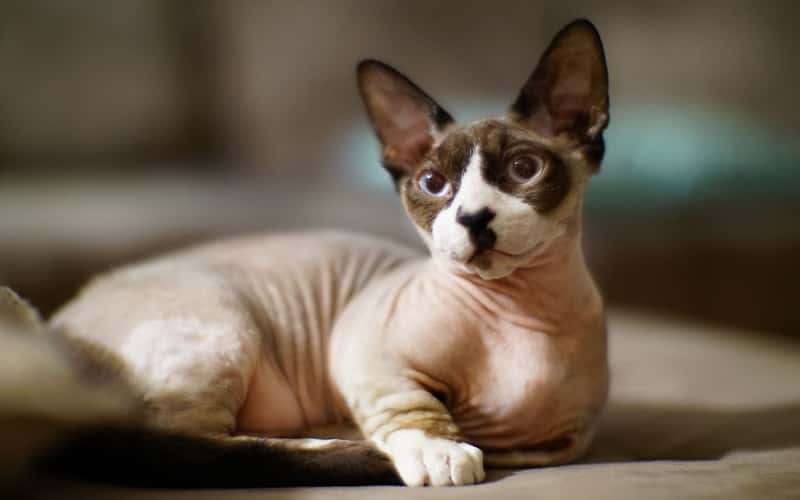Can Cats Eat Cheese? Best Tips From Vet – Petscaretip2023
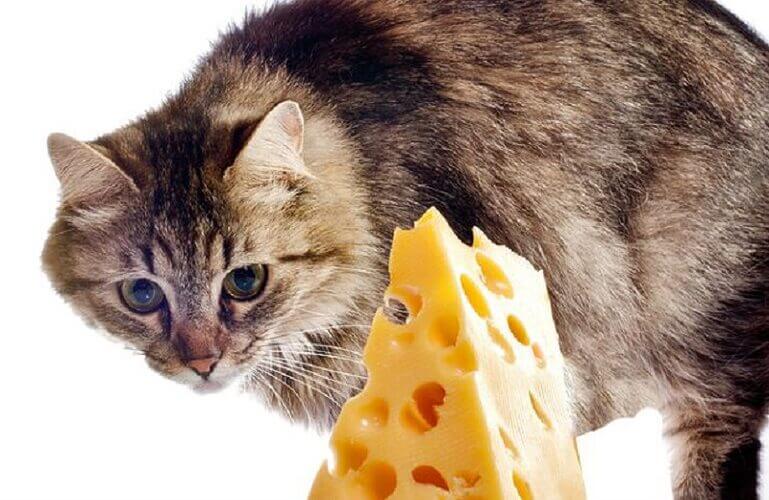
Have you ever wondered if cats can eat cheese or not? Is that true to say cheese is totally safe for our cat? Should we feed cheese with small amount or more?
Can cats eat cheese? Which type of cheese is safe for cat to eat?
Many people wonder if cats can eat cheese. The short answer is yes, cats are able to eat cheese, but it’s important to keep a few things in mind. First, not all types of cheese are safe for cats to consume. Some cheeses, like blue cheese, can be harmful to cats due to the mold content. It’s best to avoid feeding cats strong or aged cheeses. Soft cheeses, such as cottage cheese, are generally considered good for cats in small quantities.
If you want to offer your cat cheese, it’s important to remember that cats can tolerate cheese in small amounts. Cats are carnivores, and their digestive systems are not designed to process large quantities of dairy products. While it’s true that cats can’t digest dairy, a small amount of cheese occasionally might not cause any issues. Cheese is a good source of protein and fat, but it should never be the main component of a cat’s diet.
If you frequently give your cat cheese or any other dairy products, it can lead to digestive upset like diarrhea or vomiting. Some cats may also have lactose intolerance, which means they can’t properly digest lactose, the sugar found in milk products. It’s always essential to observe your cat after they consume cheese and contact your veterinarian if you notice any adverse effects.
In summary, while cats are able to eat cheese, it should only be given as an occasional treat and in small quantities. If you choose to give your cat cheese, opt for soft cheeses like cottage cheese and keep an eye out for any digestive issues that may arise.

Why do cats like cheese?
So, have you ever wondered why cats enjoy cheese? Well, let me tell you, it’s not just some old wives’ tale! Cats really do like cheese, and boy do they go crazy for it! I’m not quite sure what it is about cheese that makes it so appealing to our feline friends, but they just can’t seem to resist it. Maybe it’s the creamy texture or the mouthwatering aroma, who knows?
All I know is that whenever I have a piece of cheese in my hand, my cat is right there, begging for a taste. And you know what? I’m happy to oblige! I mean, why not? It’s not like cheese is some toxic substance for cats. In fact, cheese is considered safe for them to eat. So, if they enjoy it, why not let them indulge in a little taste of our human food? After all, cats love cheese, and who am I to deny them the pleasure of enjoying something so delicious?
Why is cheese bad for cats?
Cheese is considered toxic to cats and should be avoided in their diet. While some cat owners may think that a small bit of cheese won’t harm their feline companions, it is important to understand the risks associated with feeding cheese to cats. Firstly, non-dairy cheese alternatives are also not recommended as they often contain ingredients that are harmful to cats.
Additionally, cheddar cheese, a popular variety, is high in fat which can lead to obesity and other health issues in cats. Moreover, cats are obligate carnivores, meaning their bodies are designed to obtain all necessary nutrients from consuming animal protein. Feeding them cheese contradicts their natural dietary needs and can lead to nutritional imbalances. Furthermore, cheese can cause food allergies, including dairy allergies, in cats.
Cats lack the enzyme required to properly digest dairy products, making it difficult for their bodies to process and potentially leading to gastrointestinal distress. It is crucial to prioritize the health and wellness of our feline companions by refraining from feeding them cheese.
See Also: Can cats eat green beans?
Benefits of Feeding Cats Cheese
Ah, the cube of cheese. A delightful little morsel that brings joy to our taste buds and plumps up our thighs. But did you know that cheese isn’t just for us humans? Oh no, my friend, you can also offer this creamy wonder to your cat. Yes, you heard me right. Cheese to your cat can make cheesemany cats happy. Now, I must clarify that cheese is a very calorie-dense and high in fat indulgence.
But hey, who isn’t a fan of a guilty pleasure every now and then? And cats seem to be no different. They absolutely adore cheese as a treat for cats. It’s like their version of a gourmet meal. Plus, it’s considered safe for cats, so you can feed your feline friend a petit fromage without worrying about any unwanted side effects. So go ahead, embrace the cheesiness and bring a smile to your furry companion’s face. Cheese, for cats, it’s a cheesylicious delight!
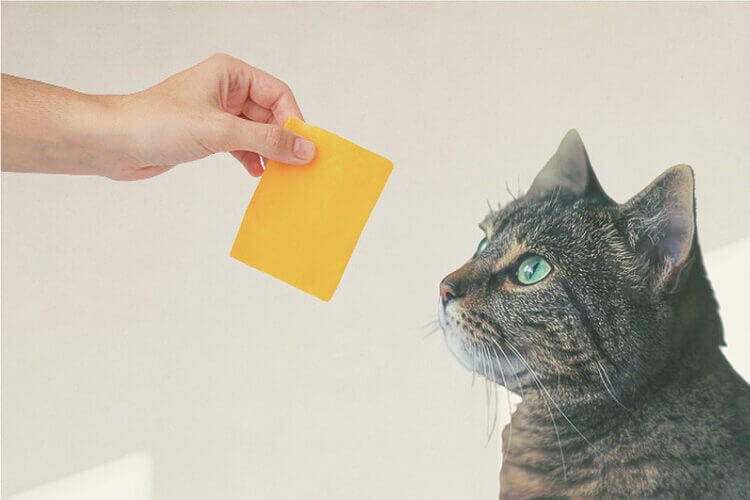
Can kittens eat cheese?
So, can kittens eat cheese? Well, here’s the deal. While adult cats can handle cheese in moderation, it’s a different story for kittens. The thing is, cheese is high in fat and kittens have little tummies that can’t handle too much of it. Plus, cats are generally lactose intolerant, so cheese might cause some tummy troubles. Now, I know what you’re thinking, “What about those cute videos of cats gobbling up cheese like it’s their last meal?”
Well, my friend, those videos might be entertaining, but they don’t always show the full picture. Every cat is different, and some might be better at digesting cheese than others. But, as a responsible pet owner, it’s best not to take any chances. Stick to treats specifically designed for kittens and save the cheese for yourself, or better yet, try some vegan cheese options that are easier on their delicate systems.
Recommended For You: Best Food For Cats In Amazon
How to Feed Cheese to Cats
Feeding your feline friend a piece of cheese may be a delightful experience, but it’s important to remember that not all cheese is suitable for cats. Some ingredients commonly found in cheese would make it bad for our furry companions. So, it’s crucial to steer clear of cheese varieties that could potentially harm them.
However, if your cat enjoys cheese and is not lactose intolerant, you can still encourage them to eat this tasty treat. One option is to offer them a small cube of cheddar cheese as a special treat. Remember, moderation is key!
While some cats may tolerate dairy products, many cats are lactose intolerant, so it’s important to be aware of any potential digestive issues that might arise. By being mindful of the type and quantity of cheese you give to your cat, you can ensure they enjoy this delectable delight without any adverse effects.
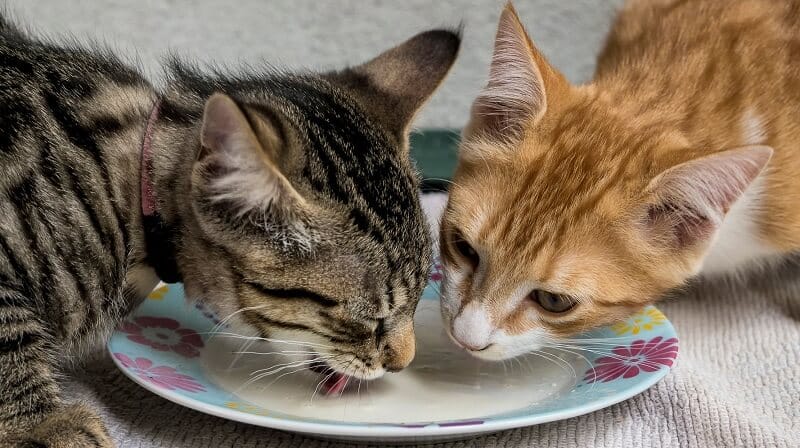
How Much Cheese is Safe for Cats?
Cheese, oh glorious cheese! It’s a treat that we humans can’t resist, but how much cheese is safe for our furry feline friends? While cats may be tempted by the delicious aroma and creamy texture of cheese, it’s important to remember that their digestive systems are not designed to process dairy products. However, this doesn’t mean we have to deprive them of this tasty snack entirely.
A small amount of cheese can be a delightful treat for your kitty, but moderation is key. Overindulging in cheese can lead to digestive issues and discomfort for your beloved pet. Remember to always read the packaging and check for any added ingredients that might be harmful to cats.
Some cheeses contain substances like onion powder or garlic, which can be toxic to felines. So, when it comes to cheese, let’s remember to give our cats their fair share. Offer it as an occasional reward, in moderate amounts, and always prioritize their health and well-being.
Creator: PetsCareTip





